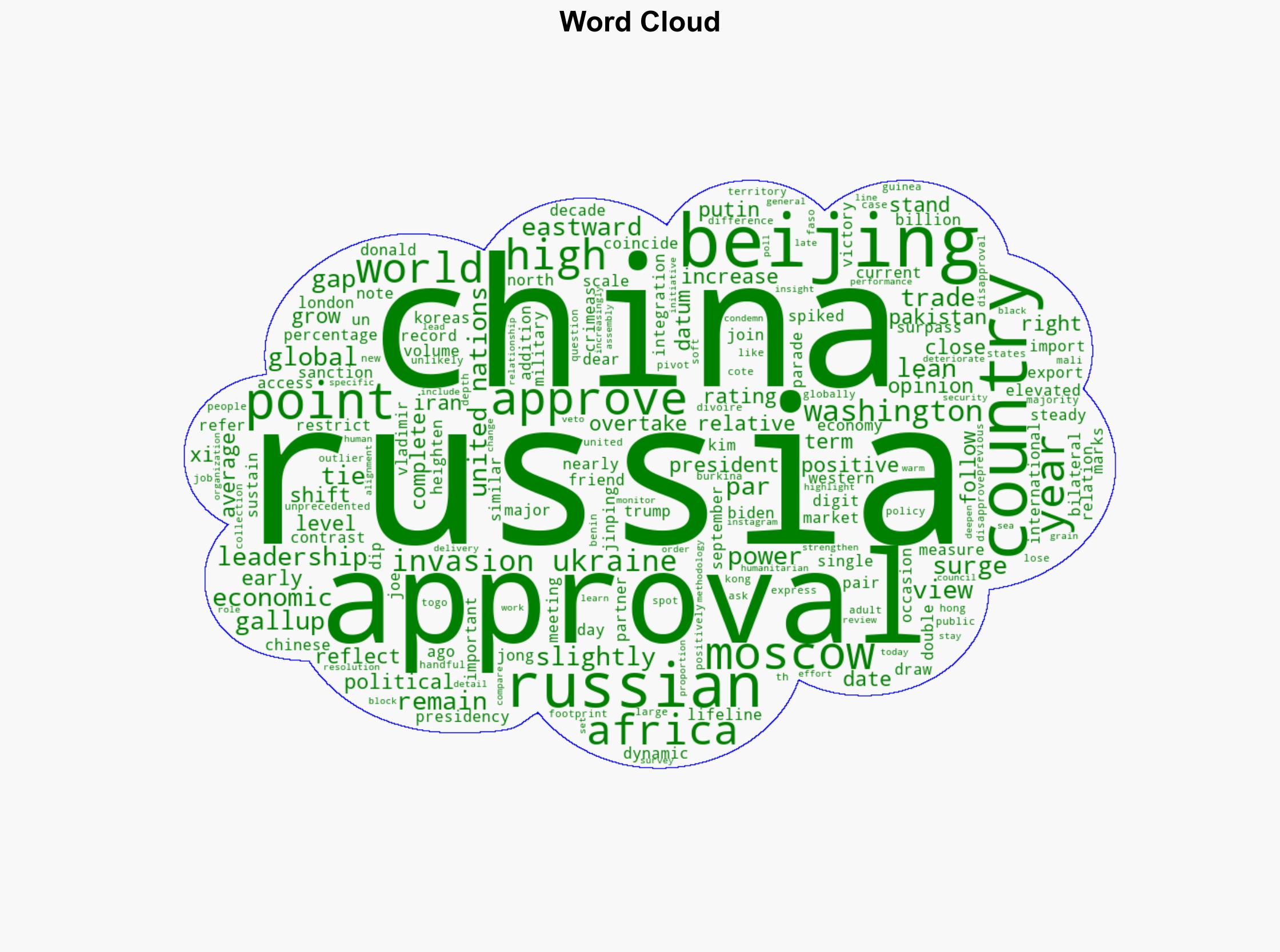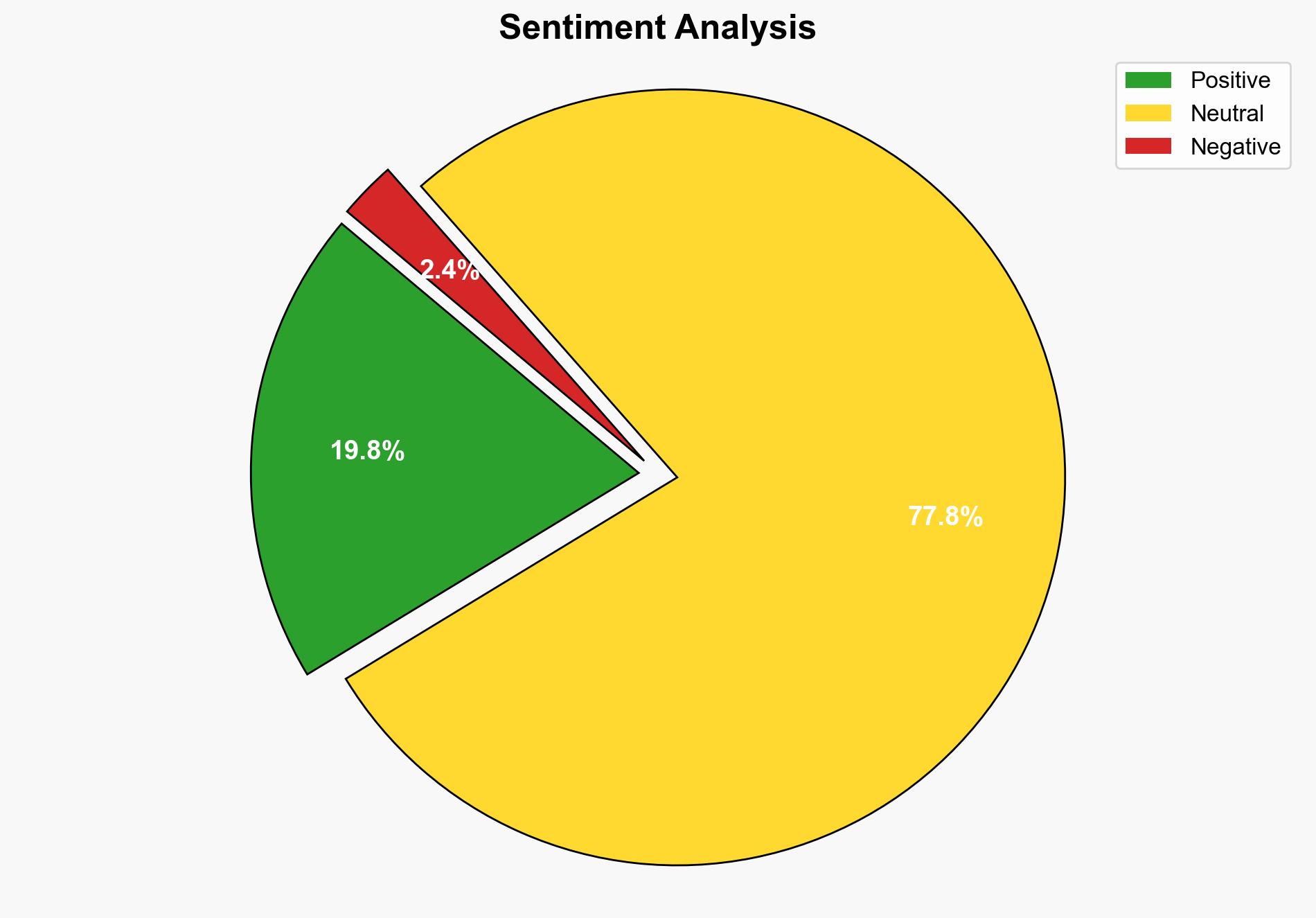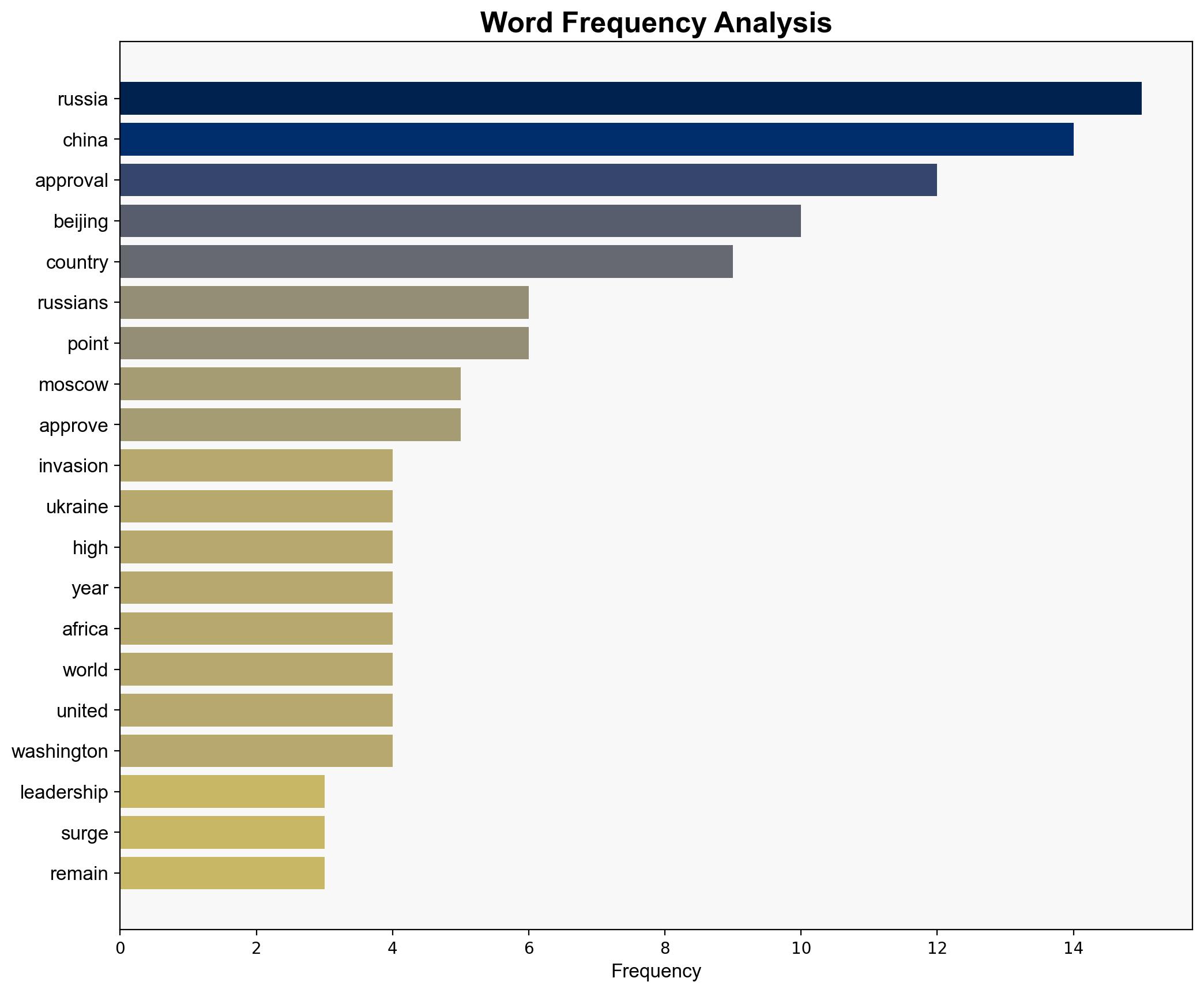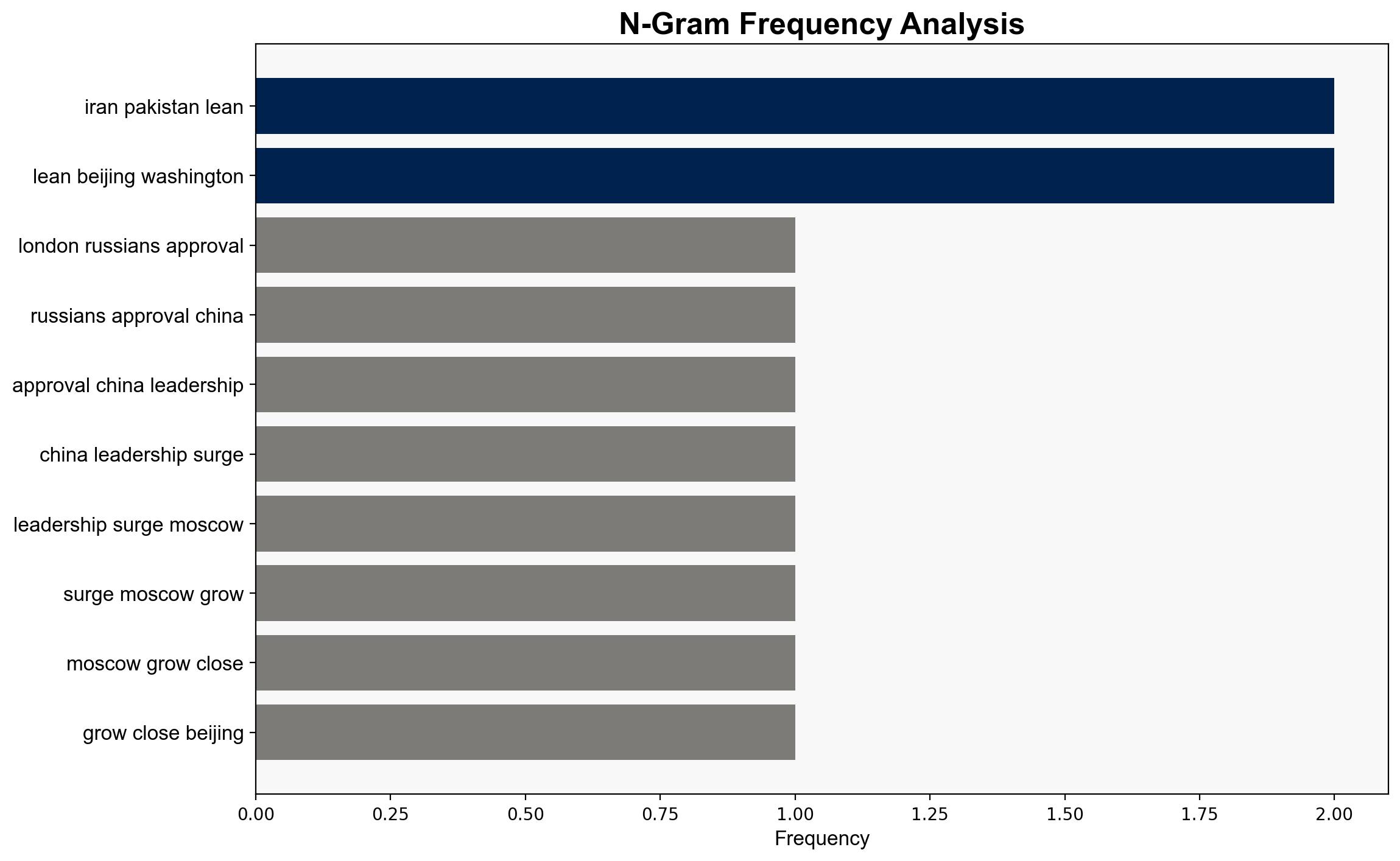Russians’ Approval of China Firms as Global Order Shifts – Gallup.com
Published on: 2025-10-27
Intelligence Report: Russians’ Approval of China Firms as Global Order Shifts – Gallup.com
1. BLUF (Bottom Line Up Front)
The most supported hypothesis is that Russia’s increasing approval of China’s leadership reflects a strategic pivot towards China as a key ally, driven by economic necessity and geopolitical isolation from the West. Confidence level: Moderate. Recommended action: Monitor the evolving Russia-China relationship for shifts in global power dynamics and adjust diplomatic and economic strategies accordingly.
2. Competing Hypotheses
1. **Hypothesis A**: Russia’s increased approval of China’s leadership is primarily driven by economic necessity due to Western sanctions, making China a critical economic partner.
2. **Hypothesis B**: The approval surge is a strategic geopolitical alignment, reflecting a deliberate pivot towards China as a counterbalance to Western influence and a response to shared political interests.
Using the Analysis of Competing Hypotheses (ACH) 2.0, Hypothesis A is supported by the significant increase in bilateral trade and China’s role in sustaining Russia’s economy amid sanctions. Hypothesis B is supported by political gestures, such as joint appearances by leaders and shared participation in international events. Both hypotheses are plausible, but Hypothesis A is slightly better supported by the economic data.
3. Key Assumptions and Red Flags
– **Assumptions**: It is assumed that economic factors are the primary driver of Russia’s pivot towards China. Another assumption is that political gestures are genuine indicators of strategic alignment.
– **Red Flags**: Potential cognitive bias includes overemphasizing economic data while underestimating political motivations. The lack of detailed survey methodology could lead to misinterpretation of public opinion data.
– **Deception Indicators**: The possibility of propaganda influencing public opinion cannot be ruled out.
4. Implications and Strategic Risks
– **Economic Risks**: Increased dependency on China could make Russia vulnerable to shifts in Chinese economic policy.
– **Geopolitical Risks**: Strengthened Russia-China ties may lead to a more polarized global order, potentially escalating tensions with Western nations.
– **Cyber and Psychological Dimensions**: Enhanced cooperation could lead to joint cyber initiatives, increasing cybersecurity threats to Western interests.
5. Recommendations and Outlook
- Monitor trade patterns and political engagements between Russia and China to anticipate shifts in global alliances.
- Engage in diplomatic efforts to mitigate the potential for a bifurcated global order.
- Scenario Projections:
- Best Case: Russia diversifies its economic partnerships, reducing dependency on China.
- Worst Case: A formalized Russia-China alliance challenges Western influence, leading to increased global tensions.
- Most Likely: Continued economic and political alignment with gradual shifts in global power dynamics.
6. Key Individuals and Entities
– Vladimir Putin
– Xi Jinping
– Kim Jong Un
– Gallup (as the source of the data)
7. Thematic Tags
national security threats, cybersecurity, regional focus, geopolitical strategy




